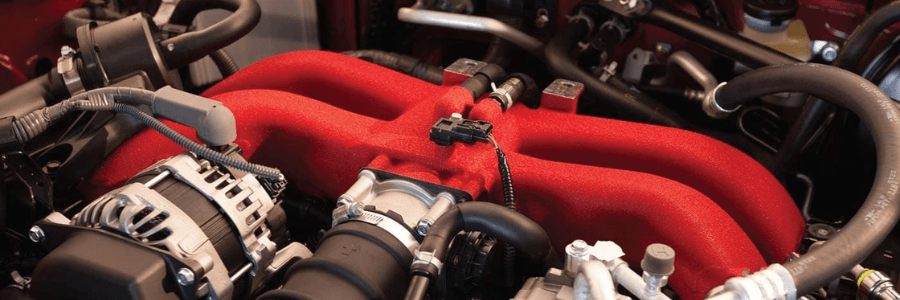Summer Car Care: Keep Your Toyota’s Cooling System in Check

Summer is finally here, and it’s time to get your Toyota ready for the hot and humid weather. One of the most crucial parts of your vehicle’s performance during the summer is the cooling system, and overheating can cause severe engine damage, leading to costly repairs.
That said, below are some tips to keep your Toyota’s cooling system in check and running smoothly throughout the summer.
- Check the Coolant Level. The coolant is responsible for regulating the engine’s temperature and preventing it from overheating. It’s essential to check the coolant level regularly, especially before long trips. To do this, make sure the engine is cold, and the car is on a level surface. Locate the coolant reservoir and check the level against the markings on the reservoir. If the required level is low, add a 50/50 mixture of the component and water. Make sure to use the correct type of coolant specified in your Toyota’s owner manual.
- Inspect the Cooling System for Leaks. Leaks in the cooling system can cause the coolant level to drop, leading to overheating. Check the radiator, hoses, water pump, and heater core for any leaks regularly. If you find even a single leak, repair it immediately or take your Toyota to a mechanic to fix them. Neglecting to deal with this problem early on can cause severe engine damage.
- Replace the Thermostat. The engine's temperature is controlled by the thermostat. When it fails, the engine can overheat. If the thermostat is broken or showing signs of wear, you should replace it. That said, we suggest you replace your vehicle’s thermostat every two to three years either way.
- Clean the Radiator. The radiator's job is to remove heat from the engine. Its effectiveness can be diminished as dust and grime build up over time. Maintaining a clean radiator is essential for its efficient operation. You can clean the radiator fins with a soft brush or a can of compressed air. When doing this, take care not to scratch the surface of the material.
- Check the Fan Belt. The fan belt is responsible for turning the fan that cools the engine. A worn or loose fan belt can cause the engine to overheat. Check the fan belt regularly for any signs of wear or looseness. If you notice any signs of wear or looseness, replace the fan belt immediately.
- Flush the Cooling System. Flushing the cooling system removes any dirt, debris, or rust that may have accumulated in the system. It’s essential to flush the cooling system every two or three years to keep it functioning correctly. Flushing the cooling system is a complex process, and it’s best to take your Toyota to a mechanic to get it done.
- Check the Electric Cooling Fan. Some Toyota models have an electric cooling fan that turns on automatically when the engine reaches a certain temperature. Check the electric cooling fan regularly to ensure it’s functioning correctly. If the electric cooling fan is not working correctly, take your Toyota to a mechanic to get it fixed.
- Use the Right Oil. It's especially important to use the correct oil in the summer to keep the engine operating smoothly. Using the incorrect one can lead to serious engine damage. To be sure you're putting the appropriate oil in your Toyota, consult the owner's manual.
Conclusion
Keeping your Toyota’s cooling system in check is crucial during the summer to avoid engine damage. Regularly checking the coolant level, inspecting the cooling system for leaks, replacing the thermostat, cleaning the radiator, checking the fan belt, flushing the cooling system, checking the electric cooling fan, and using the right oil can help prevent overheating and keep your Toyota running smoothly throughout the summer.
Pull over immediately if you see the temperature gauge rising, steam appearing from under the hood, or a sweet fragrance emanating from the engine.
If you are looking for a good Toyota dealership in British Columbia, look no further than our amazing selections here at Castlegar Toyota. We are a full-service Toyota vehicle and genuine Toyota parts retailer, and we have some of the most experienced factory-trained service technicians in the business. Browse our inventory or contact our service centre today for information about your vehicle’s cooling system.